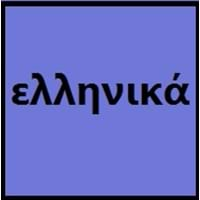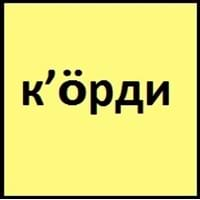Countries
Cyprus, European Union, Greece
Iraq, Kurdistan
National Language
Albania, Cyprus, Egypt, France, Greece, Italy, Romania, Turkey, Ukraine
Azerbaijan, Georgia, Iran, Iraq, Syria, Turkey
Second Language
Roman Empire
Not spoken in any of the countries
Speaking Continents
Asia, Europe
Middle East
Minority Language
Albania, Armenia, Australia, Hungary, Italy, Romania, Turkey, Ukraine
Not spoken in any of the countries
Regulated By
Center for the Greek language (Κέντρον Ελληνικής Γλώσσας)
Not Available
Interesting Facts
- Greek is the longest documented language of all the Indo-European Langauges.
- The official language of education in the Roman Empire was Greek.
- The vocabulary in Kurdish is of Iranian origin.
- In the middle East, Kurdish is the fourth largest ethnic group.
Similar To
Armenian
Farsi Language
Derived From
Latin
Not Available
Alphabets in
Greek-Alphabets.jpg#200
Kurdish-Alphabets.jpg#200
Scripts
Arabic, Latin
Arabic, Cyrillic, Latin
Writing Direction
Left-To-Right, Horizontal
Right-To-Left, Horizontal
Hello
γεια σας (geia sas)
Silaw
Thank You
ευχαριστώ (ef̱charistó̱)
Sipas
How Are You?
πώς είσαι (pó̱s eísai)
Tu çawa yî?
Good Night
Καληνυχτα (Kali̱nychta)
Şev xweş
Good Evening
καλησπέρα (kali̱spéra)
Evare baş
Good Afternoon
Καλὸ ἀπόγευμα (Kaló apóyevma)
Nee-wa-rowt bash
Good Morning
καλημέρα (kali̱méra)
Bayanit bash
Please
παρακαλώ (parakaló̱)
Bê zehmet
Sorry
συγνώμη (sygnó̱mi̱)
Bibûre
Bye
αντίο (antío)
Be xêr çî
I Love You
Σε αγαπώ (Se agapó̱)
Ez te hez dikem
Excuse Me
Με συγχωρείτε! (Me synhoríte)
Bê zehmet
Dialect 1
Cappadocian Greek
Northern Kurdish
Where They Speak
Greece
northern Iraq, northern Syria, northwest Iran, southeast Turkey
Dialect 2
Griko
Central Kurdish
Where They Speak
Italy
Iraq, Kurdistan Province of western Iran
Dialect 3
Mariupol
Southern Kurdish
Where They Speak
Ukraine
Eastern Iraq
How Many People Speak
Not Available
Native Name
ελληνικά
Kurdí / کوردی / к’öрди
Alternative Names
Ellinika, Graecae, Grec, Greco, Neo-Hellenic, Romaic
Not Available
French Name
grec moderne (après 1453)
kurde
German Name
Neugriechisch
Kurdisch
Pronunciation
[eliniˈka]
Not Available
Ethnicity
Greeks or Hellenes
Kurds
Origin
1500 BC
16th century CE
Language Family
Indo-European Family
Indo-European Family
Subgroup
Hellenic
Indo-Iranian
Branch
Not Available
Not Available
Early Forms
Proto-Greek, Mycenaean Greek, Ancient Greek, Koine Greek and Medieval Greek
Not Available
Standard Forms
Modern Greek
Kurdish
Language Position
Not Available
Signed Forms
Greek Sign Language
Not Available
Scope
Individual
Macrolanguage
ISO 639 6
ells
Not Available
Glottocode
gree1276
kurd1259
Linguasphere
56-AAA-a
58-AAA-a
Language Type
Living
Living
Language Linguistic Typology
Subject-Verb-Object
Subject-Object-Verb
Language Morphological Typology
Fusional, Synthetic
Not Available
Greek and Kurdish Greetings
People around the world use different languages to interact with each other. Even if we cannot communicate fluently in any language, it will always be beneficial to know about some of the common greetings or phrases from that language. This is where Greek and Kurdish greetings helps you to understand basic phrases in Greek and Kurdish language. Greek word for "Hello" is γεια σας (geia sas) or Kurdish word for "Thank You" is Sipas. Find more of such common Greek Greetings and Kurdish Greetings. These greetings will help you to be more confident when conversing with natives that speak these languages.
Greek vs Kurdish Difficulty
The Greek vs Kurdish difficulty level basically depends on the number of Greek Alphabets and Kurdish Alphabets. Also the number of vowels and consonants in the language plays an important role in deciding the difficulty level of that language. The important points to be considered when we compare Greek and Kurdish are the origin, speaking countries, language family, different greetings, speaking population of these languages. Want to know in Greek and Kurdish, which language is harder to learn? Time required to learn Greek is 44 weeks while to learn Kurdish time required is 4 weeks.





